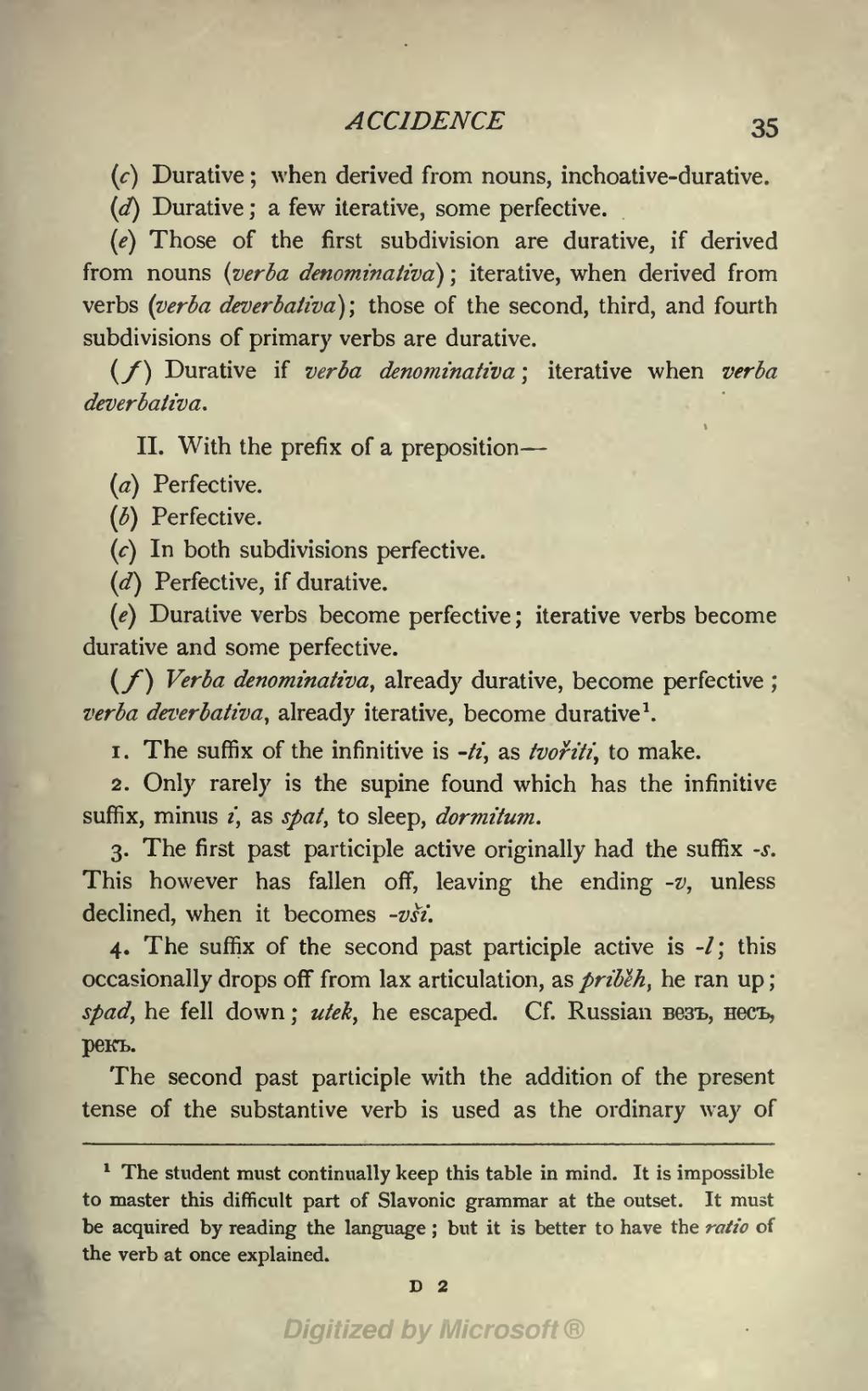(c) Durative; when derived from nouns, inchoative-durative.
(d) Durative; a few iterative, some perfective.
(e) Those of the first subdivision are durative, if derived from nouns (verba denominativa); iterative, when derived from verbs (verba deverbaliva); those of the second, third, and fourth subdivisions of primary verbs are durative.
(/) Durative if verba denominativa; iterative when verba deverbaliva.
II. With the prefix of a preposition—
(a) Perfective.
(b) Perfective.
(c) In both subdivisions perfective.
(d) Perfective, if durative.
(e) Durative verbs become perfective; iterative verbs become durative and some perfective.
if) Verba denominativa, already durative, become perfective ; verba deverbaliva, already iterative, become durative1.
1. The suffix of the infinitive is -ti, as tvořili, to make.
2. Only rarely is the supine found which has the infinitive suffix, minus i, as spat, to sleep, dormitum.
3. The first past participle active originally had the suffix -s. This however has fallen off, leaving the ending -v, unless declined, when it becomes -vsi.
4. The suffix of the second past participle active is -/; this occasionally drops off from lax articulation, as pribeh, he ran up; spad, he fell down; utek, he escaped. Cf. Russian Be3ii, HecB, peKB.
The second past participle with the addition of the present tense of the substantive verb is used as the ordinary way of
1 The student must continually keep this table in mind. It is impossible to master this difficult part of Slavonic grammar at the outset. It must be acquired by reading the language; but it is better to have the ratio of the verb at once explained.
d 2
